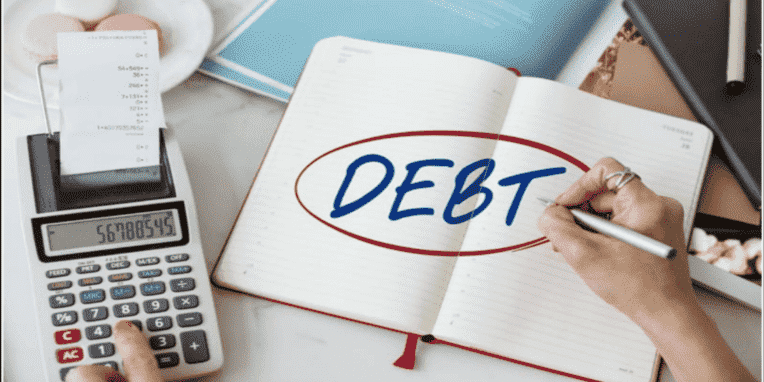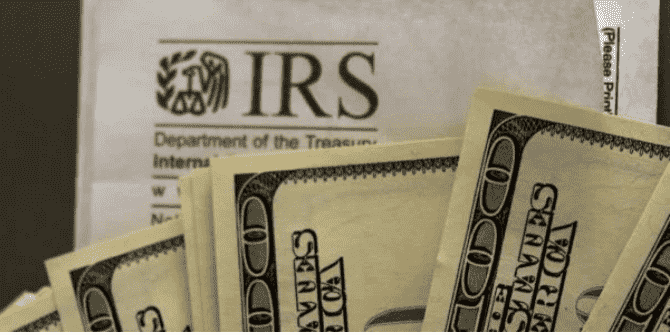Effective Approaches To Help You With Paying off IRS Debt
Jan 17, 2024 By Susan Kelly
The IRS debt can be so gigantic that many people can’t immediately pay off their whole taxation bill. If you are in the same condition, you’re likely wondering about the possibility of covering your remaining debt.
It is particularly important for you to be eager to resolve this problem rather than waiting until you fall into a problem with the IRS. IRS tax debt can affect your yearly budgets and finances in more destructive ways than any other type of debt.
In addition to debts, fees, interest and penalties, some tax administrations can endure extraordinary actions to gather this debt. Yet, some ways exist to handle this monetary burden and stop further consequences.
Today, we have assembled the best options to help you find the best way to pay off IRS tax debt that works for you. Let’s discover more about these ways to pay off IRS tax debt.
Best Methods To Pay Off IRS Tax Debt Instantly
If you also owe taxation debt, take action to settle it off or reach into a settlement plan immediately. Now, let’s look at a precise guide to the best ways to pay off IRS tax debt.

1. Short-term IRS Payment Plan
This compensation plan, offered by the IRS, offers you 120 (one hundred twenty days) extra days to pay off your tariff debt.
However, this time elongation arrives with some stipulations you must understand:
- You will be charged some interest amount and other fines while you are refunding, so it’s most useful to pay this debt off ASAP instead of waiting the entire period of 120 days.
- You are required to owe less than $10,000 as in combined tax, penalties, and interest to qualify.
Note: There is no configuration fee for the short-term payment method— the focus is just the interest and penalty amounts you will spend on top of your credit, and that’s why it is a good IRS payment plan.
2. Long-Term IRS Payment Plan

A long-term IRS payment plan, which is also understood as an installment contract, this settlement plan is correspondingly done straight via the IRS for taxpayers who want more than the 120-day extension for the payment of their bill.
To arrange a long-term payment procedure, you must tell the IRS how much money you will be able to pay realistically each month. Then, the IRS either accepts or rejects your proposal. You must pay $50,000 or less in combined tariff, penalties, and interest to qualify for this payment plan.
You will also need to pay interest and fines on top of your credit, simply like the short-term payment method. However, opposite to short-term plans, the long-term payment program has a structured fee, which could be decreased or waived on the basis of your payment method or income.
3. Credit Card
Another possible way to pay IRS debt is that you can pay your debt with a credit card, though it comes with a fee. Honestly, the IRS cannot take credit cards for tax payments. So rather, the charge can be accomplished by a third party, which then pays you a processing payment (amounting to a negligible portion of your total payment).
Remember your credit card’s interest rate before employing it to pay your taxes. A credit card has a relatively higher interest rate than other borrowing procedures, so make sure you don’t exchange one problem for another in this credit card debt method.
On an optimistic note, settling with a credit card — rather than employing an IRS payment plan — means sidestepping the IRS fines cited above. You will all agree with the IRS; the only costs will be the third-party processing expense and any interest incurred through your credit card.
4. Consider a Personal Loan
If you’re unable to negotiate a payment plan or an OIC, then there is one way to settle IRS debt, which is a personal loan. You may need to think of taking out a personal loan to pay your IRS debt. This choice should be carefully assessed, as it can come with high interest rates and costs.
Before carrying out a confidential loan, shopping around and approximating ongoing rates from different lenders is necessary. You must also ensure that you can afford the monthly installments and that the loan duration is reasonable.
5. Seek IRS Penalty Abatement

If you want to seek penalty abatement, you will definitely fill out form 483 and submit it to the IRS. You will be eligible for penalty abatement if you encounter IRS penalties.
This procedure can minimize or even remove penalties and interest on your IRS debt. You can easily pay IRS debt after the reduction or cancellation of penalties.
6. Home Equity
Using your home’s equity to pay off tax debts should be a last option. Tax debt is technically challenging debt to pay off, meaning your assets, such as your home, aren’t at risk — until the IRS files a claim. Paying the tax debt by a home equity loan, home equity line of credit, or cash-out refinance changes your unsecured tax debt into a debt secured by your home.
That said, if your owed tax debt would put you in danger of being unable to make your mortgage amount, or the IRS may place an encumbrance on your home, exiting equity to pay off the debt may be the only solution.
Conclusion
Paying off IRS debt is a challenging and serious issue that can harshly impact your budgets, finances, and credit reports. You should take care of the funds owed immediately to lessen the harm and get out from underneath this debt.
There are many ways to pay off IRS tax debt that can refund your taxes, including personal loans, Installment plans, or tapping your home's equity. Explore all of your choices to decide which approach works satisfactorily for your finances.
-
 Investment Jan 18, 2024
Investment Jan 18, 20245 Best Online Stock Brokers For Beginners in 2024
Do you want to start investing in 2024? Find the 5 best online stock brokers for beginners and start making money like a pro
-
 Banking Oct 26, 2024
Banking Oct 26, 2024Refinancing Your Home: Protecting Your Equity During the Process
If refinancing your mortgage impacts your home equity. Explore how refinancing can affect your financial position and discover ways to maintain or even increase your home equity
-
 Investment Feb 05, 2024
Investment Feb 05, 2024Important Advice To Keep In Mind Before Making Investment Decisions
Wise investment makes huge profits! So, read this article to learn about pieces of investment advice from experts for beginners.
-
 Investment Aug 01, 2024
Investment Aug 01, 2024How Can WiseBanyan Milestones Tool Help You Invest For Future Goals?
Discover how WiseBanyan's Milestones Tool promotes wise money management and helps you achieve your financial goals.
